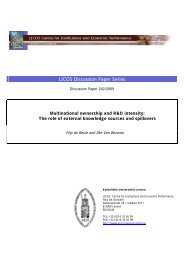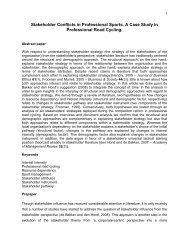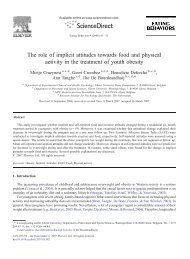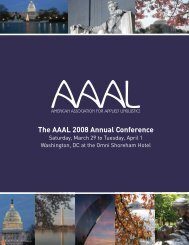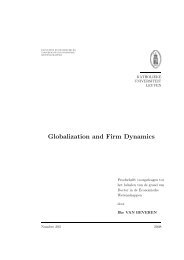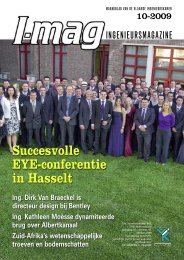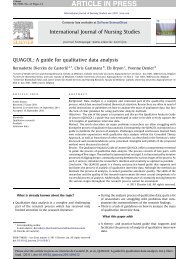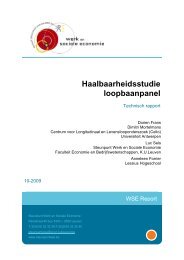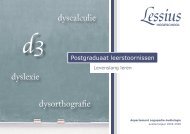View/Open - Lirias@Lessius
View/Open - Lirias@Lessius
View/Open - Lirias@Lessius
You also want an ePaper? Increase the reach of your titles
YUMPU automatically turns print PDFs into web optimized ePapers that Google loves.
4<br />
nomic and military cooperation between Georgia and the United States, to<br />
the extent that the latter sought to demonstrate its support for the former,<br />
made Turkey’s response to the crisis part and parcel of Turkish-American<br />
relations.<br />
Russia too, in recent years, has become an important economic partner<br />
for Turkey. Even more than a partner: Russia provides two thirds of Turkey’s<br />
natural gas imports, imports necessary for the consumption of its industry<br />
and for heating its major cities in winter. While the early tension between<br />
Turkey and Russia in the aftermath of the Cold War had been overcome<br />
by a strategy of cooperation in economic and political arenas, this mutual<br />
tolerance had been based on the non-assertive policy of both parties in the<br />
Caucasus and Central Asia. With the invasion of Georgia, it seems that Russia<br />
has now opted for an assertive policy in the region, reclaiming a zone of<br />
influence. Instead of confronting Russia bilaterally, Turkey has responded<br />
by utilizing channels of multilateral diplomacy, proposing a Caucasian Stability<br />
and Cooperation Platform. This idea sounds timely and useful, but<br />
may be unrealistic given the global and regional dynamics.<br />
Developments in the Caucasus in general, and the attitude of Russia in<br />
particular vindicate Turkey’s search to diversify its energy resources and<br />
reduce its dependence on Russian gas. This has in fact been the rationale<br />
for Turkey’s increasing engagement with Iran in recent years on energy cooperation.<br />
Turkey’s positive relationship with Iran, one that includes energy<br />
deals, can set an example for European countries, provided that Iran settles<br />
its nuclear dispute with the West. If such a consensus arises, new energy<br />
pipelines running through Turkey will again occupy the agenda of Turkish<br />
domestic and foreign policies.<br />
The crisis in the Caucasus has had the positive effect of provoking a<br />
rapprochement between Turkey and Armenia; Turkish President Abdullah<br />
Gül made a historic visit in early September to Yerevan on the occasion of a<br />
soccer match between the two countries. This highest level contact between<br />
Turkey and Armenia may open a new period of conciliation, understanding<br />
and cooperation if it is followed up by new initiatives. History can become<br />
a bridge, bringing the Turks and Armenians closer instead of driving them<br />
apart.<br />
Another challenge for Turkish foreign policy is an old one: Cyprus.<br />
Renewed negotiations between Presidents Talat and Hristofias have raised<br />
hopes for the possibility of a final settlement. Such an outcome will certainly<br />
accelerate Turkey’s EU integration, an objective reasserted by the government<br />
as a priority. However, even if a settlement is reached it will not be<br />
easy to sell it to a Turkish public provoked by sentimental nationalism and<br />
disappointed by the EU’s reluctance to admit Turkey.<br />
This new issue of Insight Turkey deals extensively with these issues and<br />
more. We hope you enjoy it.



